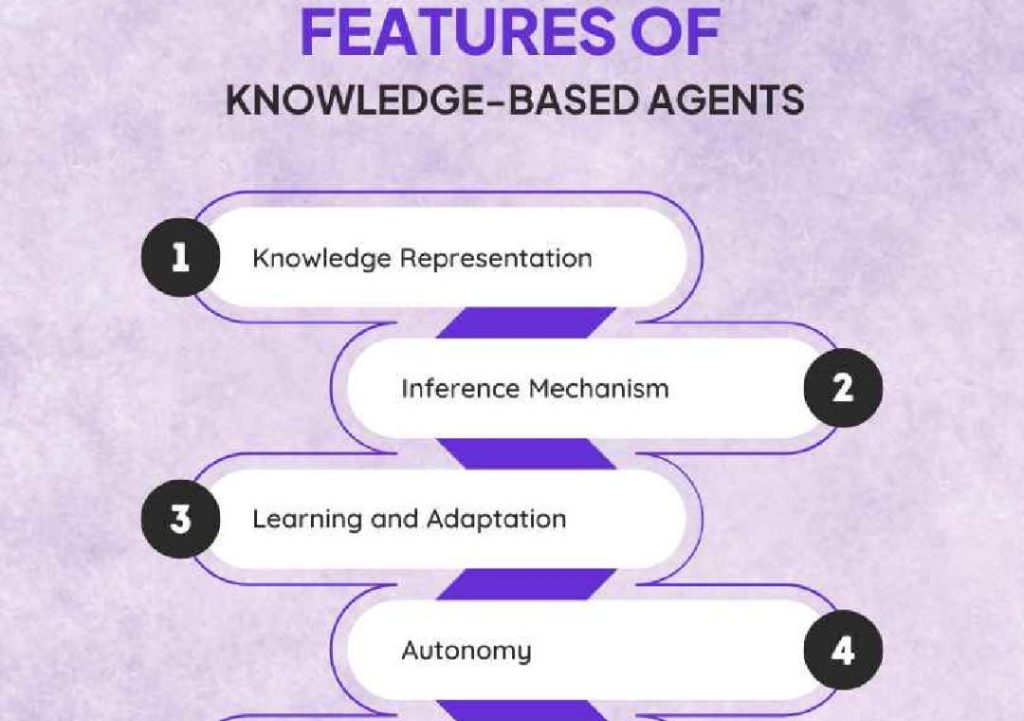
Are Knowledge-Based AI Agents Smarter?
In recent years, artificial intelligence (AI) has made tremendous progress, with various applications across industries. However, the type of AI used has become a topic of debate, with some arguing that knowledge-based AI agents are superior to other approaches. In this blog post, we’ll explore the concept of knowledge-based AI agents, their advantages, and why they are considered smarter than other types of AI.
What are Knowledge-Based AI Agents?
Knowledge-based AI agents use structured domain knowledge, combined with inference, to reason and make decisions. This approach differs significantly from pattern-only models, which rely solely on statistical patterns to make predictions. Knowledge-based agents are particularly useful in domains like legal or medical research, where they combine rule bases (fact trees, logic) with probabilistic reasoning to offer explainable decisions.
The hybrid architecture of knowledge-based agents, which combines rule-based systems with probabilistic reasoning, improves transparency and trust compared to opaque neural approaches. In contrast, neural networks are often criticized for their lack of transparency, making it difficult to understand how they arrive at their conclusions.
Advantages of Knowledge-Based AI Agents
- Explainability: Knowledge-based AI agents provide transparent and explainable decisions, making them more trustworthy than neural networks. In domains like healthcare, transparency is crucial, as patients need to understand the reasoning behind medical decisions.
- Domain Expertise: Knowledge-based agents are designed to work within specific domains, utilizing domain-specific knowledge and rules. This expertise enables them to perform tasks with greater accuracy and precision.
- Flexibility: Knowledge-based agents can adapt to changing circumstances and integrate new knowledge seamlessly, making them more flexible than traditional rule-based systems.
- Scalability: Knowledge-based agents can handle complex, high-dimensional data and scale to large datasets, making them suitable for applications like natural language processing and computer vision.
- Error Detection: Knowledge-based agents can identify and correct errors more effectively than other AI approaches, as they are designed to work within specific domains and utilize domain-specific knowledge.
Real-World Applications of Knowledge-Based AI Agents
- Healthcare: Knowledge-based agents can be used in medical diagnosis, treatment planning, and patient care. By combining rule-based systems with probabilistic reasoning, these agents can provide accurate and transparent decisions.
- Legal Research: Knowledge-based agents can be used in legal research to analyze case law, statutes, and regulations. By combining rule-based systems with probabilistic reasoning, these agents can provide accurate and transparent decisions.
- Financial Analysis: Knowledge-based agents can be used in financial analysis to analyze stock prices, predict market trends, and identify investment opportunities. By combining rule-based systems with probabilistic reasoning, these agents can provide accurate and transparent decisions.
- Natural Language Processing: Knowledge-based agents can be used in natural language processing to analyze text, identify sentiment, and generate responses. By combining rule-based systems with probabilistic reasoning, these agents can provide accurate and transparent decisions.
Challenges and Limitations of Knowledge-Based AI Agents
- Complexity: Knowledge-based agents can be complex and difficult to design, as they require a deep understanding of the domain and the ability to combine rule-based systems with probabilistic reasoning.
- Data Quality: Knowledge-based agents require high-quality data to function effectively. Poor-quality data can lead to inaccurate and unreliable decisions.
- Domain Knowledge: Knowledge-based agents require domain-specific knowledge and expertise to function effectively. Without this knowledge, the agents may not be able to perform tasks accurately.
- Integration: Knowledge-based agents may require integration with other AI approaches, such as neural networks, to function effectively.
Conclusion
In conclusion, knowledge-based AI agents offer several advantages over other types of AI, including explainability, domain expertise, flexibility, scalability, and error detection. These agents are particularly useful in domains like legal or medical research, where transparency and trust are essential. While knowledge-based agents have their challenges and limitations, they have the potential to revolutionize various industries and applications.
By combining rule-based systems with probabilistic reasoning, knowledge-based agents can provide accurate and transparent decisions, making them more trustworthy than other AI approaches. As AI continues to evolve, it’s essential to recognize the importance of knowledge-based agents and their potential to transform various industries and applications.
News Source:
https://www.growthjockey.com/blogs/knowledge-based-agent-in-ai






